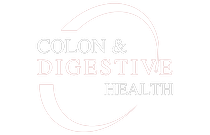Why Should You Prioritize Dental Care for Improved Gut Health at Colon and Digestive?

- colondigestive
- July 29, 2024
- 4:07 pm
- No Comments
As you strive to maintain a healthy gut, you may not realize your dental care’s critical role in achieving this goal. The connection between your oral health and gut health is more intertwined than you think. Research suggests that poor dental health can lead to an imbalance of gut bacteria, which can have far-reaching consequences for your overall well-being. By prioritizing dental care and focusing on colon and digestive health, you can take a holistic approach to maintaining a healthy gut. In this article, we’ll explore the importance of integrating dental care into your gut health regimen and how it can profoundly impact your overall health.
Key Takeaways:
Here are the key takeaways on why prioritizing dental care is vital for improved gut health at Colon and Digestive:
- Oral-Gut Connection: The mouth and gut are connected through the gut-brain axis, and poor oral health can lead to gut dysbiosis, inflammation, and digestive issues. A gut health dentist in Conyers, GA, can help identify and address these connections.
- Holistic Approach: An integrative dentist in Conyers, GA, takes a comprehensive approach to dental care, considering the impact of oral health on overall gut health and well-being. This approach can lead to more effective treatment outcomes and improved overall health.
- Bacterial Imbalance: Poor oral health can lead to an imbalance of bacteria in the mouth, which can spread to the gut and cause digestive issues. A gut health dental clinic in Conyers, GA, can help restore balance to the oral microbiome.
- Inflammation and Gut Health: Gum disease and other oral health issues can lead to chronic inflammation, negatively impacting gut health. A functional dentist in Conyers, GA, can help identify and address these underlying issues.
- Specialized Care: A dentist specializing in gut health in Conyers, GA, like Karim Shakoor, M.D., can provide personalized care that addresses the unique needs of patients with gut health issues, leading to more effective treatment outcomes and improved overall health.
By prioritizing dental care and focusing on gut health, individuals can experience improved digestive health, reduced inflammation, and a stronger immune system.
The Gut-Dental Connection
A growing body of research has shed light on the intricate relationship between oral and gut health. This connection is rooted in the bidirectional communication between the mouth and gut, which can have a profound impact on overall well-being.
The Oral Microbiome and Gut Health
One of the key players in this connection is the oral microbiome, which consists of trillions of microorganisms that inhabit your mouth. These microorganisms produce metabolites and signaling molecules that can influence your gut health and vice versa. In fact, studies have shown that the oral microbiome can affect the composition and function of the gut microbiome and even influence the development of certain diseases.
How Dental Care Affects Gut Bacteria
To understand the impact of dental care on gut health, it’s necessary to recognize that your mouth is a gateway to your gut. The bacteria in your mouth can travel to your gut through the bloodstream, influencing the balance of your gut microbiome. This means that poor dental care can lead to an imbalance of gut bacteria, while good dental care can promote a healthy balance.
Research has also shown that certain dental procedures, such as tooth extractions and periodontal treatment, can alter the composition of the gut microbiome. For instance, a study published in the Journal of Clinical Periodontology found that periodontal treatment can increase the abundance of beneficial bacteria in the gut. This highlights the importance of regular dental check-ups and good oral hygiene practices in maintaining a healthy gut microbiome.
The Impact of Poor Dental Care on Gut Health
Any neglect or lack of attention to your dental care can have far-reaching consequences, significantly impacting your gut health.
Inflammation and Gut Permeability
Poor dental hygiene can lead to chronic inflammation in the mouth, which can spread to other parts of the body, including the gut. This inflammation can cause the gut lining to become permeable, allowing toxins and undigested food particles to leak into the bloodstream, leading to a range of health issues.
The Link Between Gum Disease and Gut Inflammation
The connection between gum disease and gut inflammation is complex. Still, research suggests that the bacteria that cause gum disease can also contribute to inflammation in the gut. Link this to the fact that the same bacteria that cause gum disease have been found in the gut, and it becomes clear that there is a strong connection between your mouth’s and your gut’s health. Studies have shown that people with gum disease are more likely to develop digestive issues, such as irritable bowel syndrome (IBS). By prioritizing your dental care, you can help reduce the risk of gut inflammation and promote a healthier digestive system.
How Gut Health Affects Dental Care
After understanding the intricate connection between your gut and dental health, it’s necessary to explore how gut health affects dental care. The relationship between the two is bidirectional, meaning that issues in one area can impact the other.
The Gut-Brain-Dental Axis
One of the primary ways gut health influences dental care is through the gut-brain-dental axis. This complex network connects your gut microbiome to your brain and, subsequently, to your oral health. Research suggests that an imbalance of gut bacteria can lead to changes in brain chemistry, which can manifest as anxiety, depression, or other conditions that may affect your dental health.
How Gut Bacteria Influence Oral Health
To better comprehend the connection between gut health and dental care, let’s examine how gut bacteria influence oral health. The gut microbiome produces metabolites that enter the bloodstream and eventually reach the mouth. Depending on the balance of your gut bacteria, these metabolites can either promote or hinder oral health.
The imbalance of gut bacteria, also known as dysbiosis, can lead to an overgrowth of harmful bacteria in your mouth. This, in turn, can contribute to issues like tooth decay, gum disease, and bad breath. On the other hand, a balanced gut microbiome can support a healthy oral microbiome, reducing the risk of these problems. By prioritizing gut health, you can create a favorable environment for your oral health to thrive.
The Role of Nutrition in Gut-Dental Health
Unlike other areas of health, the connection between nutrition and gut-dental health is often overlooked. However, your food is crucial in maintaining a healthy gut and dental ecosystem. A well-balanced diet can promote a thriving gut microbiome, supporting a healthy mouth and digestive system.
Foods That Promote Healthy Gut Bacteria
GutDental harmony begins with consuming foods that promote the growth of beneficial gut bacteria. Fermented foods like kimchi, sauerkraut, and kefir contain live cultures that help populate your gut with healthy microbes. Fibre-rich foods like fruits, vegetables, and whole grains also provide prebiotics that feed these beneficial bacteria, supporting a strong gut-dental axis.
Nutrients Essential for Dental Health
Essential vitamins and minerals are vital for maintaining healthy teeth and gums. A calcium, vitamin D and phosphorus-rich diet supports strong tooth enamel and jawbone density. In contrast, vitamin C and CoQ10 promote healthy gum tissue and reduce inflammation.
Incorporating these nutrients into your diet can promote optimal oral health. For example, calcium-rich foods like dairy products, leafy greens, and fortified plant-based milk support tooth development and maintenance. Vitamin D in fatty fish, egg yolks, and fortified cereals helps regulate calcium levels and immune function. By prioritizing these important nutrients, you can safeguard your dental health and support a thriving gut microbiome.
Do not forget that a healthy gut and dental ecosystem are intertwined. You can promote a balanced gut microbiome by making informed dietary choices, supporting optimal oral health. Consult with a holistic dentist or healthcare professional, like Dr. Karim Shakoor, M.D to learn more about the importance of nutrition in gut-dental health and how to incorporate these principles into your daily life.
Effective Dental Care for Improved Gut Health
For optimal gut health, dental care that addresses the intricate connection between oral health and digestive well-being must be prioritized. By adopting a comprehensive approach to dental care, you can promote a healthy balance of gut bacteria, boost your immune system, and even alleviate symptoms of digestive disorders.
Regular Check-Ups and Cleanings
Regular dental check-ups and cleanings are crucial to maintain a healthy mouth and gut. These appointments allow your dentist to identify and treat oral health issues before they escalate into more severe problems that can impact your gut health. According to the American Dental Association, regular cleanings can reduce the risk of gum disease, which has been linked to various digestive disorders.
Proper Brushing and Flossing Techniques
Care for your teeth and gums by mastering proper brushing and flossing techniques. This simple yet effective habit can help remove plaque, bacteria, and food particles that can contribute to oral health issues and, subsequently, impact your gut health. With proper brushing and flossing, you can prevent the buildup of harmful bacteria in your mouth, which can migrate to your gut and disrupt the delicate balance of your microbiome. Dedicating just a few minutes each day to these habits can significantly reduce your risk of oral health problems and promote a healthier gut. By prioritizing these necessary aspects of dental care, you’ll take a significant step towards achieving optimal gut health and overall well-being. At our gut health-focused dental clinic in Conyers, GA, our team, led by Karim Shakoor, M.D., is dedicated to providing personalized care that addresses the intricate connection between oral health and digestive well-being. Learn more about our approach to integrative dental and gut health care and schedule your appointment today!
Holistic Approaches to Gut-Dental Health
Once again, the connection between gut and dental health emphasizes the need for a holistic approach to achieving optimal wellness. Incorporating these approaches into your daily routine can improve your overall health and reduce the risk of chronic diseases.
Stress Reduction and Mindfulness
Approaches to managing stress, such as meditation, yoga, and deep breathing exercises, can profoundly impact gut-dental health. Chronic stress can disrupt the balance of your gut microbiome, leading to inflammation and digestive issues. By practicing mindfulness and reducing stress, you can promote a healthy gut-dental axis.
Probiotics and Prebiotics for Gut-Dental Balance
Probiotics and prebiotics are vital components of a healthy gut microbiome. These beneficial bacteria and fibers help maintain a balanced gut environment, supporting healthy digestion and a strong immune system.
With a balanced gut microbiome, you can experience improved oral health, reduced inflammation, and a lower risk of chronic diseases. Probiotics and prebiotics can also help relieve symptoms of digestive disorders, such as bloating, constipation, and diarrhea. Incorporating probiotics and prebiotics into your diet can promote a healthy gut-dental axis and improve your overall well-being.
Do not forget that a holistic approach to gut-dental health involves considering the interconnectedness of your body’s systems. By adopting these approaches, you can take a proactive step towards achieving optimal health and wellness. We offer personalized guidance and support to help you achieve a healthy gut-dental axis. Contact us today to schedule a consultation with Dr. Karim Shakoor, M.D and take the first step towards a healthier, happier you!
Conclusion
From above, it’s clear that prioritizing dental care is crucial for improved gut health at Colon and Digestive. By understanding the intricate connection between your oral and gut health, you can take proactive steps towards a healthier you. By choosing a holistic dentist like Karim Shakoor, M.D in Conyers, GA, who specializes in gut health-focused dentistry, you’ll be on the path to achieving optimal digestive health. Don’t wait – schedule your appointment today and start experiencing the benefits of integrative dental and gut health care for yourself.
FAQ
Q: How are oral health and gut health connected?
A: The connection between oral and gut health is more significant than you think. Research has shown that the bacteria in your mouth can travel to your gut and affect your overall digestive health. Studies have found that up to 50% of the bacteria in your gut can be traced back to your mouth. This means that poor oral health can lead to an imbalance of gut bacteria, which can cause various digestive issues. By prioritizing dental care, you can help maintain a healthy balance of gut bacteria and support overall digestive well-being. Learn more about why gut health matters.
Q: What are some common signs that my dental health is affecting my gut health?
A: If you’re experiencing symptoms such as bloating, gas, diarrhea, or stomach pain, it could be related to poor dental health. Other signs might include bad breath, gum inflammation, or tooth sensitivity. Suppose you’re experiencing any of these symptoms. In that case, it’s important to schedule an appointment with a holistic dentist in Conyers, GA, who can assess your oral health and provide personalized recommendations for improving your gut health.
Q: How can a gut health-focused dentist help me?
A: A gut health-focused dentist in Conyers, GA, takes a holistic approach to dental care, considering the connection between your oral health and overall well-being. They can help identify underlying issues contributing to poor gut health, such as gum disease, tooth decay, or malocclusion. By addressing these issues, a gut health-focused dentist can help you achieve better digestive health and reduce symptoms such as bloating, constipation, or irritable bowel syndrome (IBS).
Q: What kind of treatments can I expect from a dentist specializing in gut health?
A: A dentist specializing in gut health in Conyers, GA, may recommend various treatments, including colon and digestive dental care, to help improve your oral health and support gut health. These treatments might include deep cleanings, dental restorations, or dental alignment care to address issues such as malocclusion. They may also recommend lifestyle changes, such as dietary modifications or stress-reduction techniques, to support overall digestive well-being.
Q: How can I find a dentist who prioritizes gut health in Conyers, GA?
A: Finding a dentist who prioritizes gut health is crucial for optimal oral and digestive health. Look for an integrative dentist in Conyers, GA, who has experience in gut health-focused dentistry. You can also ask about their approach to dental care and whether they consider the connection between oral and gut health. Don’t hesitate to ask questions or schedule a consultation to find the right dentist. Dr. Karim Shakoor, M.D is a trusted gut health-focused dental care provider in Conyers, GA.
————————————————————————————————————-
Karim Shakoor, M.D. is a board-certified gastroenterologist and founder of Colon & Digestive Health Specialists, LLC. He completed his residency and fellowship at Cook County Hospital, known for having one of the most extensive programs in the country. Karim Shakoor, M.D. is dedicated to providing his patients with the highest level of care to improve their quality of life. He specializes in the treatment of digestive disorders, including abdominal pain, colon cancer, constipation, diarrhea, diverticulitis, gas, gastrointestinal bleeding, heartburn, irritable bowel syndrome, peptic ulcers, swallowing difficulty, and ulcerative colitis.
Schedule an appointment | Google Maps | Services| About Us
© 2024 All Rights reserved © 2024 by Colon & Digestive Health Specialists

